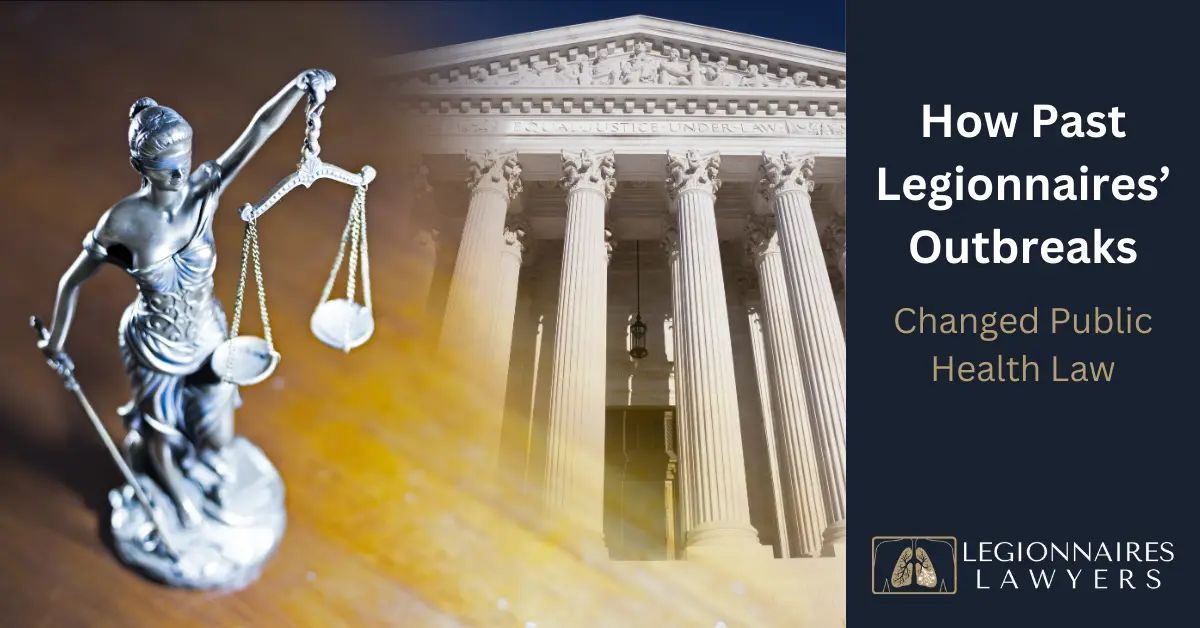
When lives are lost in preventable outbreaks, the law often follows. Sometimes, it does so too slowly, but with force. Few diseases have shaped public health policy as profoundly as Legionnaires’ disease, a severe, often deadly form of pneumonia caused by inhaling contaminated water droplets.
Past Legionnaires’ outbreaks exposed dangerous gaps in public health law. From the 1976 mystery in Philadelphia to the 2015 Bronx crisis, each event forced reforms, ushering in new regulations, liability standards, and legal protections that save lives today.
The problem? For decades, reactive emergency response was the default approach. Health agencies raced to contain outbreaks without addressing the systemic failures that allowed them to happen in the first place. Victims—many of them seniors, hospital patients, or residents of low-income housing—suffered because our laws failed to prevent what science had already understood.
It wasn’t until the tragedy of the 2015 South Bronx outbreak, which killed 16 people, that major U.S. cities like New York took bold legal action. And in healthcare, the federal government finally stepped in with enforceable mandates, reshaping water safety rules for thousands of facilities across the country.
At Legionnaires Lawyers, we’ve helped families navigate the legal consequences of these failures. With experience in environmental health litigation and public safety regulation, we understand how law and science intersect. And how justice is won when negligent parties are held accountable.
This blog explores the pivotal outbreaks that changed public health law, the landmark policies they inspired, and why legal oversight remains critical in protecting communities from preventable disease.
The Outbreaks That Shaped Modern Public Health
The 1976 Philadelphia outbreak was the turning point. After 221 people became ill and 34 died at an American Legion convention, public health officials realized how unprepared they were for airborne waterborne pathogens like Legionella pneumophila. Investigations were chaotic: no unified command, no 24/7 public health access, and no coordinated lab response.
But out of that chaos came progress. CDC protocols, emergency response standards, and unified epidemiological procedures were born. Still, for nearly 40 years, regulations focused more on detection than prevention. The legal system hadn’t yet caught up.
Then came the 2015 Bronx outbreak—138 cases, 16 deaths, and a lightning-fast legal response. New York City passed Local Law 77 within weeks, requiring universal cooling tower registration, quarterly inspections, and rapid response to contamination.
How the Law Changed: From Patchwork Rules to Bold Protections
The Philadelphia outbreak set the foundation, but Local Law 77 marked the first truly comprehensive cooling tower regulation in a major U.S. city. It introduced:
- Mandatory tower registration within 30 days
- Quarterly inspections by certified technicians
- 24-hour reporting of serious health threats
- Penalties up to $25,000 and jail time for violations leading to injury or death
This wasn’t just policy; it was precedent. The law also established negligence per se, meaning that building owners in violation were automatically deemed legally negligent in civil court.
Soon after, the Centers for Medicare & Medicaid Services (CMS) issued a nationwide mandate for all Medicare-certified healthcare facilities. They had to develop customized Legionella water management plans or risk losing certification— a regulatory death sentence for hospitals and nursing homes.
Legal Liability: From Optional Maintenance to Mandated Accountability
Before these legal reforms, building owners and operators often got away with inadequate maintenance. Legionella outbreaks were treated as unfortunate accidents. But new laws reframed that mindset.
Today, property owners, employers, and healthcare administrators face clear legal obligations:
- Maintain compliant water systems
- Act immediately on Legionella detections
- Keep documentation of maintenance and response protocols
Failure to do so invites lawsuits, civil penalties, and— in some cases— criminal charges. Several landmark cases have already established that failure to comply with safety standards equals liability.
Legal teams now rely on these updated statutes to pursue justice for victims. And courts are listening.
Public Health Law in Motion: New Tools for New Threats
The law hasn’t stopped evolving. With climate change increasing Legionella risk zones and aging infrastructure creating perfect conditions for bacterial growth, public health law is adapting.
- Genomic sequencing now helps investigators match patient strains with environmental sources, tightening legal liability trails.
- Professional licensing for water safety technicians is gaining traction.
- Insurance companies are beginning to require Legionella prevention plans for commercial coverage.
Internationally, countries like the Netherlands and members of the EU have integrated Legionella-specific controls into their drinking water laws and public health codes. The U.S. still lags in some areas, but enforcement is ramping up.
Why Ongoing Oversight Still Matters
The story of Legionnaires’ disease and public health law isn’t over. Each outbreak has taught us something new—but enforcement and awareness are what make those lessons stick.
We now know:
- Outbreaks are preventable.
- Legal accountability saves lives.
- Stronger laws mean fewer tragedies.
But only if they’re enforced.
That’s where law firms like Legionnaires Lawyers come in. We help families seek justice, ensure compliance, and hold negligent parties accountable.
Protecting Communities Before the Next Outbreak
The legal transformation sparked by past Legionnaires’ outbreaks is one of the most powerful examples of crisis-driven reform in public health history. From the Philadelphia chaos of 1976 to the Bronx’s game-changing Local Law 77, and the nationwide CMS healthcare mandate, every regulation was written in response to lives lost.
Today, those laws protect hospitals, schools, senior living centers, hotels, and workplaces across the country. But only if they’re followed.
If you or a loved one has been exposed to Legionnaires’ disease, contact Legionnaires Lawyers at (225) 888-8888 or visit legionnaireslawyers.com. We’re based in Baton Rouge, LA, and we’re here to help.
Don’t wait until the next outbreak. The law is on your side. Make sure it’s enforced.
You May Have a Case. We’re Here to Help.
Free Consultation


